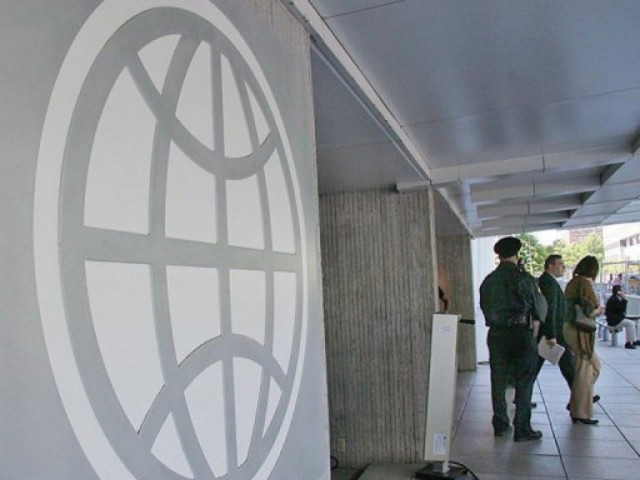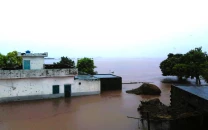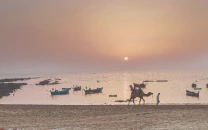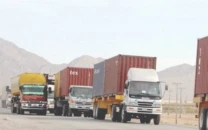Illango strong advocate of regional integration
World Bank official wants Pakistan to reap benefits of its geographical position

World Bank official wants Pakistan to reap benefits of its geographical position. PHOTO: AFP
A strong supporter of regional integration, Patchamuthu Illangovan (Illango) - World Bank’s new Country Director for Pakistan - wants the country to reap greater benefits of its geographical position.
Illango, who joined the Islamabad office on October 1 after Rachid Benmessaoud completed his term, shared his priorities and hopes with The Express Tribune.
World Bank’s help: Local export industry to get a boost
Boasting 32 years of development business experience, Ilangovan has worked in the private and public sectors in Sri Lanka, his native country, before joining the World Bank in 1993.
His first impression of Pakistan is positive, fascinated by the country, its culture, heritage and hospitality.
Illango has background in environment, natural resources and urban development - areas that Pakistan’s policymakers tend to neglect despite there being an urgent need to take corrective actions. Illango is among the first and second generation environmental specialists hired by the World Bank.
Illango has also worked in Pakistan earlier, first in Karachi on urban water and sanitation before his Punjab stint on urban development.
He has worked in East Asia and Pacific Region, South Asia, Europe and Central Asia.
The World Bank’s message
“I am a great believer of local adaptive approaches to find solutions that confront countries,” said Illango, as he spelt out his priorities.
He sees some underlying challenges common in South Asian countries that are visible in Pakistan as well.
One challenge is the continuous building of strong institutions, which underpins anything that a country wants to do in terms of economic success, trading across borders or boosting
the private sector to contribute to reducing poverty, he argues.
The challenge of shared prosperity and reducing extreme poverty is common in all South Asian countries, he says.
Regional integration
Regional integration is presenting tremendous opportunities for all countries, believes the country head.
He sees the World Bank-funded CASA-1,000 project, under which surplus power will be exported from Tajikistan and Kyrgyzstan to Pakistan and Afghanistan, as a model of regional integration.
Three reasons to keep counting on Pakistan
He would explore options to find what the World Bank can do for improved road connectivity in terms of linking Pakistan with Central Asia, through Afghanistan.
“Pakistan owns a lot of heritage sites and there are other countries, for example Sri Lanka, Nepal and Bhutan that can be linked to promote tourism,” he adds.
“Small steps can build a much more integrated region,” says Illango.
Meanwhile, appearing a bit cautious, Illango said that one cannot completely divorce economics from politics.
“Politics is going to be there, but we also need to be opportunistic to see where we can take advantage and where the momentum and incentives lie to create an impact, at least to get the process of integration moving.”
Pakistan now 138th among 189 economies
He says the ultimate dream is to have connectivity for land-based trade that starts from Hanoi and links it to Hamburg - the world’s third largest port in Germany. “If we can do it in the next 30 years then the world becomes a smaller place.”
Priorities
He says the World Bank is a trusted partner of the government, adding that he wants to deliver on four areas, defined under the Country Partnership Strategy.

These include transforming the energy sector, which means fewer hours of load-shedding. Second is expanding the role of the private sector to boost private investment from 14% of GDP to 35%, which means creating millions of jobs.
Thirdly, helping Pakistan to do more in serving the people in underserved areas, like Fata, K-P and Balochistan. Fourth is the broader service delivery in education, health and social protection.
At the same time, Illango wants to push for regional integration. “Pakistan can take tremendous advantage of its geography and location. It can be a great transit route and is the gateway to the region.”
He also wants to push things on the demographic front. “Seven million youth is out of school, which is the second highest in the world and there is a need to focus on girls’ education, which can also significantly contribute to GDP.”
He says there is a need to focus on urbanisation. There are studies establishing that a 5% increase in urban population leads to a 1% increase in overall GDP growth. In many countries, cities are the engine of growth, which also help rural areas, he adds.
Climate change
He says climate resilience and disaster mitigation is another area where a lot more work is needed. “Good environment management is a journey and it takes a long time … smart growth is built on sound environmental decision making.”
Published in The Express Tribune, October 31st, 2015.
Like Business on Facebook, follow @TribuneBiz on Twitter to stay informed and join in the conversation.



















COMMENTS
Comments are moderated and generally will be posted if they are on-topic and not abusive.
For more information, please see our Comments FAQ